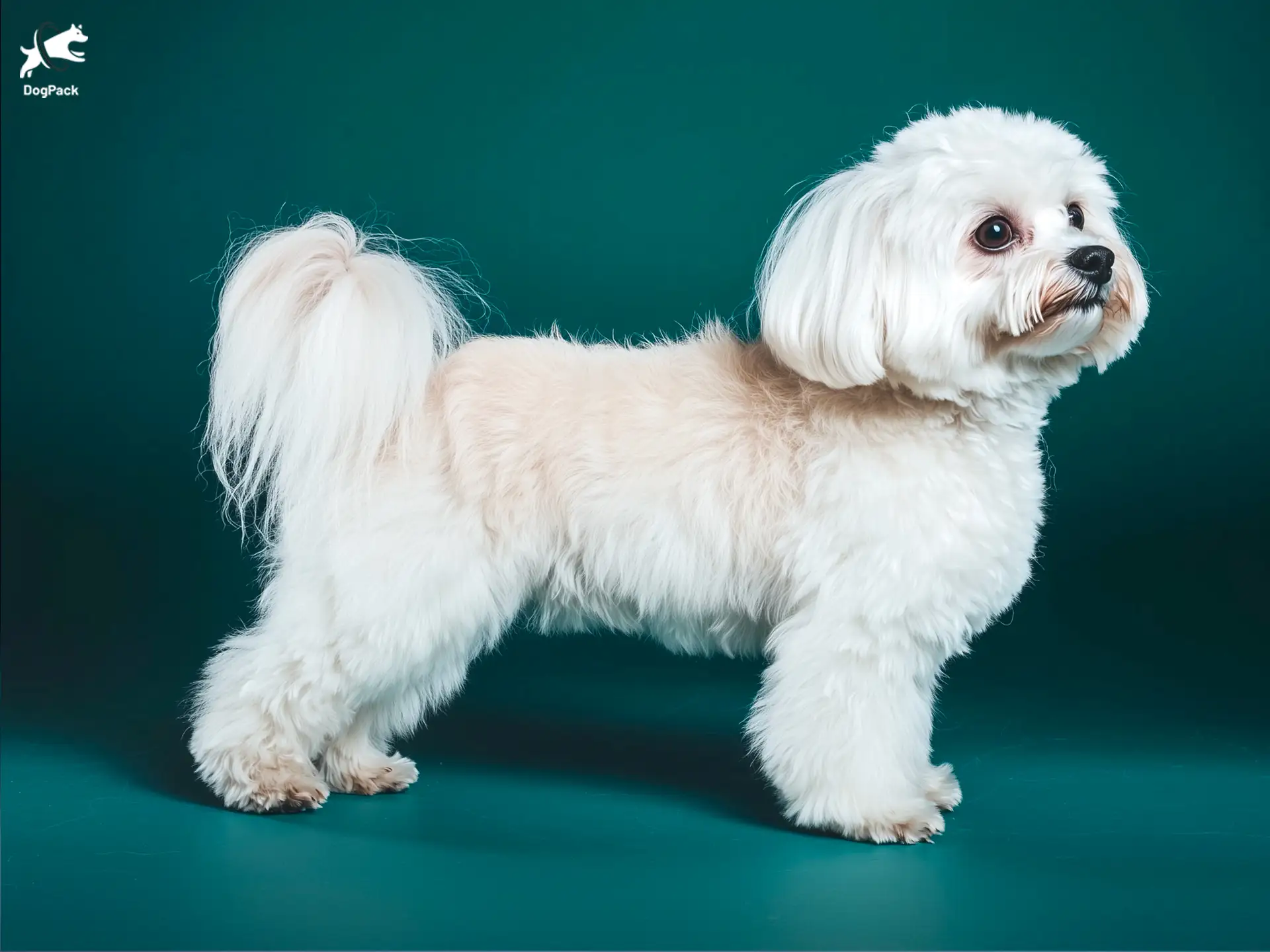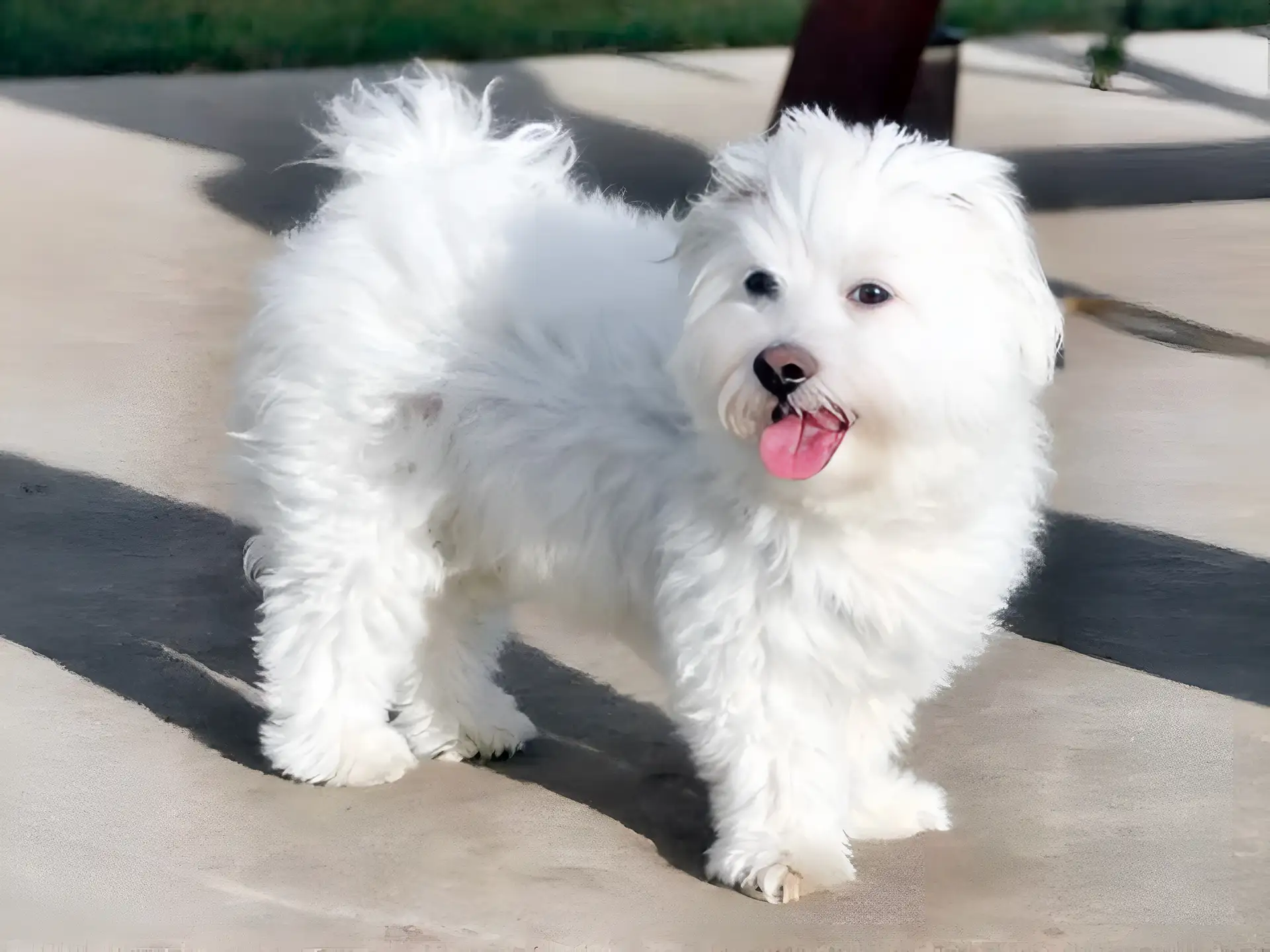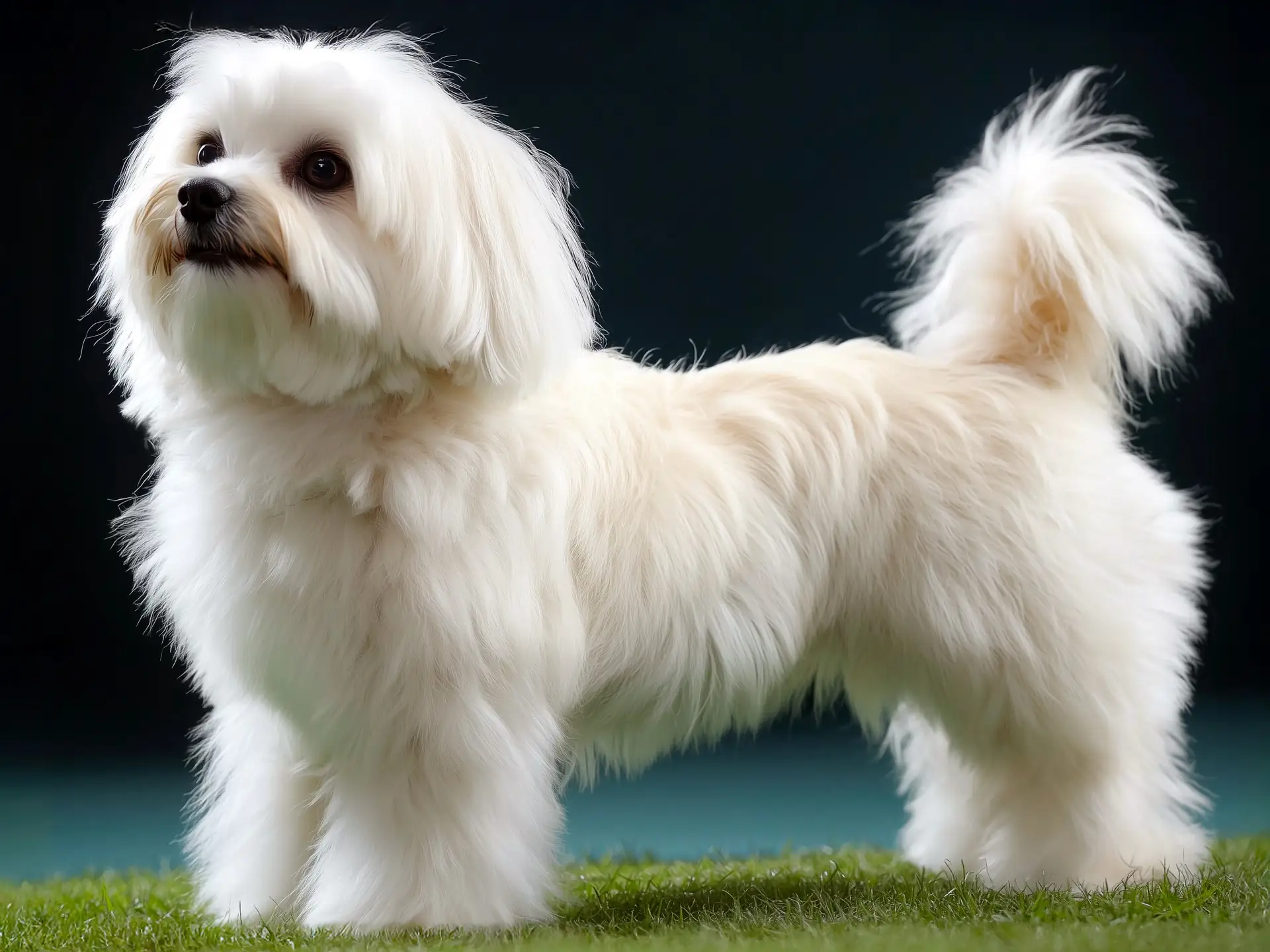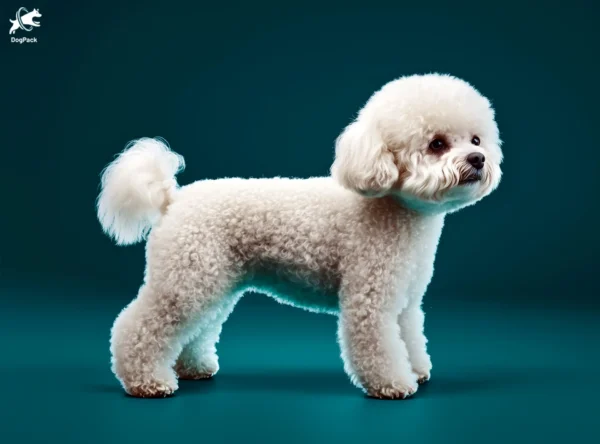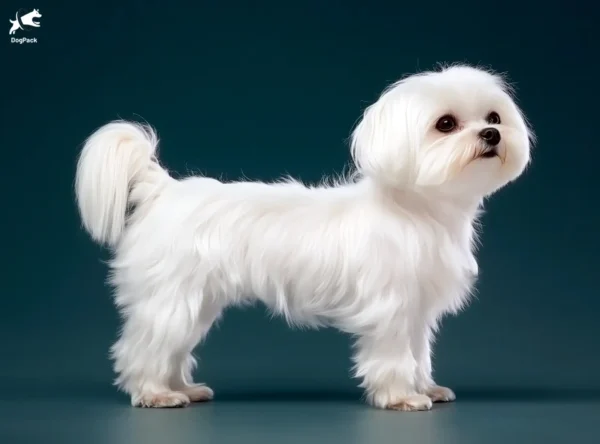Coton de Tulear Dog Breed Info & Overview
The Coton de Tulear, a charming breed from Madagascar, is adored for its soft, cotton-like coat and joyful personality. Known for being affectionate and hypoallergenic, this small dog is ideal for families, seniors, and first-time owners alike. With their playful spirit and adaptable nature, Cotons make wonderful companions, bringing warmth and joy to any household—especially for those with allergies.
Characteristics
Pictures
Breed History
Originating from the island of Madagascar, the Coton de Tulear has a rich history as the preferred companion of Malagasy nobility. Their name comes from the port city of Tuléar (now Toliara) and their cotton-like coat. Legend has it they swam ashore after surviving shipwrecks, which only adds to their mystique.
These little dogs were so treasured that they were once considered the “Royal Dog of Madagascar,” forbidden to be owned by commoners. Their journey to international recognition began in the 1970s when they were introduced to Europe and North America. Today, they remain a rare breed but are steadily gaining popularity.
The American Kennel Club officially recognized the Coton de Tulear in 2014, solidifying their status among purebred enthusiasts. Despite their noble origins, they are down-to-earth dogs that thrive on companionship. Their historical seclusion on Madagascar contributed to their unique genetic makeup and robust health.
Temperament, Personality
The Coton de Tulear is known for its cheerful and clownish personality. They love to entertain their families with playful antics and are exceptionally affectionate. Their sociable nature makes them excellent companions, and they tend to form strong bonds with their human families.
These dogs are highly adaptable and get along well with children and other pets, including cats. Their gentle disposition means they’re unlikely to show aggression, making them ideal for households with multiple animals. Early socialization further enhances their friendly demeanor.
While they enjoy a good play session, Cotons are also content to snuggle on the couch. They are intelligent and eager to please, which makes training a rewarding experience. However, they can be prone to separation anxiety if left alone for long periods, so they thrive in homes where someone is around.
Physical Characteristics
True to their name, the Coton de Tulear sports a long, fluffy coat that feels as soft as cotton. They are small dogs, typically weighing between 8 and 13 pounds (4–6 kg) and standing 9 to 11 inches (23–28 cm) tall. Their dark, expressive eyes and black nose stand out against their white coat.
While white is the most common color, some Cotons may have slight shadings of light grey or tan on their ears. Their plumed tail curls over their back, adding to their charming appearance. Their overall build is sturdy yet elegant, embodying both strength and grace.
Their coat is single-layered, which contributes to their hypoallergenic qualities. Despite their fluffy appearance, they are not heavy shedders. Regular grooming keeps their coat in top condition and prevents matting. Their unique look often turns heads and invites compliments from admirers.
Health Issues
The Coton de Tulear is generally a healthy breed with a lifespan of 14 to 16 years. However, like all breeds, they are susceptible to certain health conditions. Common concerns include hip dysplasia, progressive retinal atrophy, and heart issues.
Regular veterinary check-ups are essential to catch any potential problems early. Eye examinations and hip evaluations are recommended for this breed. Maintaining a healthy weight through proper diet and exercise can also prevent joint issues.
Genetic testing is advisable when selecting a puppy from a breeder to ensure they come from healthy stock. Responsible breeders will screen for hereditary conditions. Overall, with proper care, the Coton de Tulear can enjoy a long, happy life with minimal health complications.
Grooming Needs
Despite their luxurious coat, the Coton de Tulear’s grooming needs are moderate but consistent. Daily brushing is recommended to prevent tangles and mats. Their cotton-like hair can easily become knotted if neglected.
Bathing should be done every few weeks or as needed to keep their coat clean and soft. Because they have hair rather than fur, they don’t shed much, making them suitable for allergy sufferers. Regular grooming sessions can also be a bonding experience.
Don’t forget about dental hygiene; regular teeth brushing can prevent periodontal disease. Their nails should be trimmed monthly, and ears checked regularly for signs of infection. Some owners opt for professional grooming to maintain their coat’s appearance.
Exercise Requirements
The Coton de Tulear has moderate energy levels and doesn’t require excessive exercise. A daily walk of about 30 minutes is sufficient to keep them happy and healthy. They enjoy playtime and mental stimulation as well.
Interactive games like fetch or puzzle toys can keep their intelligent minds engaged. They are also agile and may enjoy canine sports like agility or obedience trials. However, they’re just as content with indoor play sessions on rainy days.
Because of their small size, they adapt well to apartment living but still need regular activity to prevent boredom. Without sufficient exercise, they may develop behavioral issues like excessive barking or chewing. Consistency is key to meeting their exercise needs.
Training Tips
The Coton de Tulear is intelligent and eager to please, which makes training relatively easy. Positive reinforcement methods work best, as they respond well to praise and treats. Keep training sessions fun and varied to hold their interest.
Early socialization is important to ensure they grow into well-adjusted adults. Exposing them to different people, places, and experiences can reduce any tendencies toward shyness. They may have a stubborn streak, so patience is essential.
Consistency is key in house training; they may take a bit longer to fully grasp it. Crate training can be beneficial for both potty training and providing a safe space. Avoid harsh corrections, as they are sensitive and can become timid.
Nutrition, Diet
Feeding a Coton de Tulear requires attention to quality and portion size. A diet rich in high-quality proteins supports their active lifestyle and maintains muscle mass. Typically, they need about ¾ to 1 cup of dry dog food per day, divided into two meals.
Due to their small size, overfeeding can quickly lead to obesity, which strains their joints and overall health. Choose a dog food formulated for small breeds to meet their nutritional needs. Avoid giving too many treats, and monitor their weight regularly.
Some Cotons may have food sensitivities; consult your veterinarian if you notice digestive issues. Fresh water should always be available. Incorporating omega-3 fatty acids can promote a healthy coat, which is especially beneficial for this breed’s distinctive fur.
Adoption, Breeders
If you’re considering adding a Coton de Tulear to your family, it’s crucial to find a reputable breeder. Look for breeders who perform health screenings and are knowledgeable about the breed. Visiting the breeder can provide insight into the puppies’ upbringing.
Adoption is another wonderful option. Organizations like the American Coton Club and North American Coton Association offer resources for rescue and adoption. Adopting a rescue dog can be a rewarding experience.
Avoid purchasing from puppy mills or pet stores that may source from unethical breeders. Ask for health certificates and meet at least one of the puppy’s parents if possible. A responsible breeder will be just as interested in you as you are in their puppies.
Family Pet?
The Coton de Tulear is an excellent choice for families. Their gentle and playful nature makes them great companions for children. They enjoy participating in family activities and thrive on human interaction.
They are also well-suited to seniors due to their manageable size and moderate exercise needs. Their adaptability means they can adjust to various living situations, whether it’s a bustling household or a quiet home.
Because they get along well with other pets, including cats, they fit seamlessly into multi-pet households. Their loving disposition and desire to be part of the family make them an ideal family pet.
Right For You?
If you’re looking for a small, affectionate dog that doesn’t require intense exercise, the Coton de Tulear might be the perfect match. They are ideal for those who can spend ample time with them, as they crave companionship.
However, if you’re frequently away from home or unable to commit to regular grooming, this breed may not be the best fit. They can develop separation anxiety if left alone too long, leading to unwanted behaviors.
Ultimately, the Coton de Tulear is a delightful companion for individuals or families who appreciate their unique qualities. Their charming personality and adaptability make them a joy to have around.
Conclusion
Charming, affectionate, and full of life, the Coton de Tulear is a breed that brings joy wherever they go. Their hypoallergenic coat and adaptable nature make them suitable for a variety of households, from bustling families to serene seniors. If you’re ready to commit to their grooming needs and can offer the companionship they crave, the Coton de Tulear might just be the perfect addition to your life.
FAQs
-
What makes the Coton de Tulear’s coat different from other dog breeds?
The Coton de Tulear’s coat has a unique, cotton-like texture that is softer and denser than most dog fur. Unlike other breeds, their coat rarely tangles and has minimal shedding, contributing to its hypoallergenic qualities and adding to its distinctive fluffy appearance.
-
How adaptable is the Coton de Tulear to different living environments?
Coton de Tulears are highly adaptable and can thrive in both apartments and larger homes. Their moderate exercise needs make them well-suited to city living, provided they have regular walks and playtime to meet their physical and mental needs.
-
Can Coton de Tulear dogs be trained for agility sports?
Yes, the Coton de Tulear can be trained for agility sports due to their intelligence and agility. They excel in activities that combine mental and physical challenges, and their eagerness to please makes them quick learners in agility or obedience classes.
-
Do Coton de Tulears enjoy water activities?
Many Coton de Tulears enjoy water and can be natural swimmers, though individual preferences vary. Early exposure to water can help them feel comfortable in it, and supervised swim sessions can be a fun way to exercise and bond with your Coton.
-
How does the Coton de Tulear handle alone time?
The Coton de Tulear is a social breed and may struggle with long periods of alone time, often preferring company. To avoid separation anxiety, provide enrichment toys, or consider a pet sitter if extended alone time is unavoidable.
Breed Ratings
The Coton de Tulear is intelligent and quick to learn, making training a rewarding experience.
This breed is highly playful and enjoys entertaining their family with fun antics.
They have moderate energy levels, needing daily walks but are also content to relax indoors.
With a low-shedding coat, they are ideal for those who prefer a cleaner home.
Cotons have a low prey drive, so they can get along well with smaller pets.
Their coat requires regular grooming to prevent matting, so they need moderate maintenance.
Eager to please and intelligent, they respond well to positive reinforcement training.
They prefer companionship and may not tolerate being alone for long periods.
They may bark to alert but are not known for excessive barking when properly trained.
This breed has minimal drooling, making them easy to live with indoors.
Cotons are sociable and get along well with other dogs, especially when socialized early.
Generally healthy with a long lifespan, but regular vet check-ups are important.

